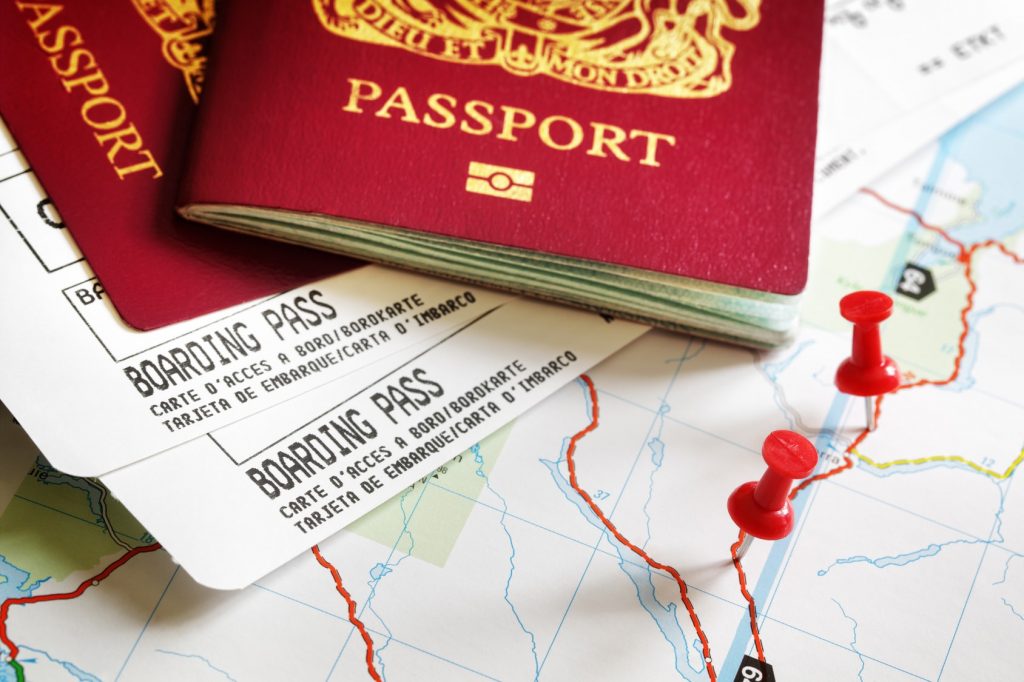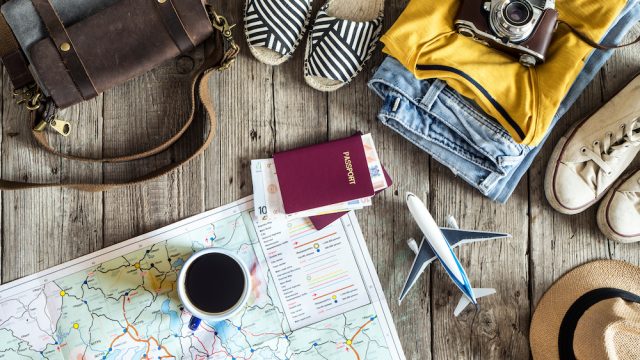We have seen some shocking events unfold in recent years, aimed at spreading terror. While the attacks have been few and far between, you still may be concerned. When you’re travelling, it’s your responsibility to take as many appropriate precautions as possible as you are ultimately responsible for your own safety, and potentially those you may be travelling with. As Easter is only a few weeks away, we discuss whether it’s safe to travel and what precautions you can take before you set off.
 Photo by: Brian Jackson/Stock
Photo by: Brian Jackson/Stock
Where can I visit that’s not likely to see a terror attack?
The FCO, Foreign and Commonwealth Office, will not definitely rule any country as ‘safe’. They provide information on countries and offer travel advice through their website. As standard, most of these pages now carry the phrase “Terrorist attacks can’t be ruled out”. Each country has a page on “Terrorism” which details the recent history of terrorism in that particular country.
Each page contains a colour co-ordinated map using the following code:
- Green areas: you should follow the FCO’s advice and information.
- Orange areas: The FCO advise against all but essential travel to these areas. There is no definition of what essential travel is; this will be personal to you. What may be deemed as essential for one person, may not apply to another.
- Red areas: All travel to this area is advised against.
The majority of popular tourist destinations are coloured green.
You can sign up to receive an email alert when there’s an update to a country.
It’s always best to check the FCO website for information on the country you’re due to visit to be aware of any warnings that are in place. The FCO website, plus others, will allow you to make an informed decision about where you decide to travel to.
How does this affect my travel insurance?
Some travel insurance policies may be voided if you travel to an area that’s been deemed as high-risk by the FCO.
Bear in mind that advice from the FCO may affect your flights. Some airlines may make the decision to cancel flights to a country following a warning from the FCO. Check whether your insurance policy will provide cover against cancelled flights, whether they’re cancelled by the airline, or by yourself should you change your mind and decide not to travel.
We know that reading small print can be tedious and confusing, but it’s there for a reason. Make sure that whatever you book, you know what your rights are and are aware of the terms and conditions in place.
What are the precautions I can take?
Ensure that you’ve followed the media reporting for the local area you’ll be visiting and check for any FCO advice.
Be vigilant throughout your trip, especially if you’re travelling around significant religious occasions or to open public spaces that are frequented by visitors. If you see something suspicious, report it to the police immediately. The UK’s National Counter Terrorism Security Office detail in this leaflet what to look out for. Remember that emergency services can be contacted by dialling 112 in any EU country; the call centre will then re-route your call to the correct authority.
Keep your mobile phone charged up, with credit on it if necessary, with emergency contacts saved. Make sure someone who isn’t travelling with you knows where you are and what your plans are for the day.
What should I do if there’s a terrorist attack?
While the chances are low that you’ll encounter a potential terrorist attack, here is the official advice given by the Government:
Run. Head to a safe location as quickly as possible, insisting that others go with you.
Hide. Be aware of where your exits are. Lock or barricade yourself in a room if needs be and stay away from any doors. Ensure your mobile phone is silent and cannot be detected.
Tell. Call the police as soon as it’s safe for you to do so, giving as much information as you can about where you are, the attacker, and the situation.
Stay safe on your holidays
It’s not been a pleasant blog to write, but it’s important that these issues are discussed and people are aware of key information. Always make sure you’re aware of the threat level in the country you’re planning to visit and, although the chances are low, know what to do when you’re there should there be an emergency.
Written by Jessica Juby.
Make sure you follow us on Twitter and Facebook for the latest travel tips and news. Remember to sign up to our newsletter below for the latest deals.
Subscribe to our newsletter
Want our blogs emailed direct to you? Sign up below to get updates featuring our blogs and car hire top tips. Receive the best deals on car hire straight to your inbox.





